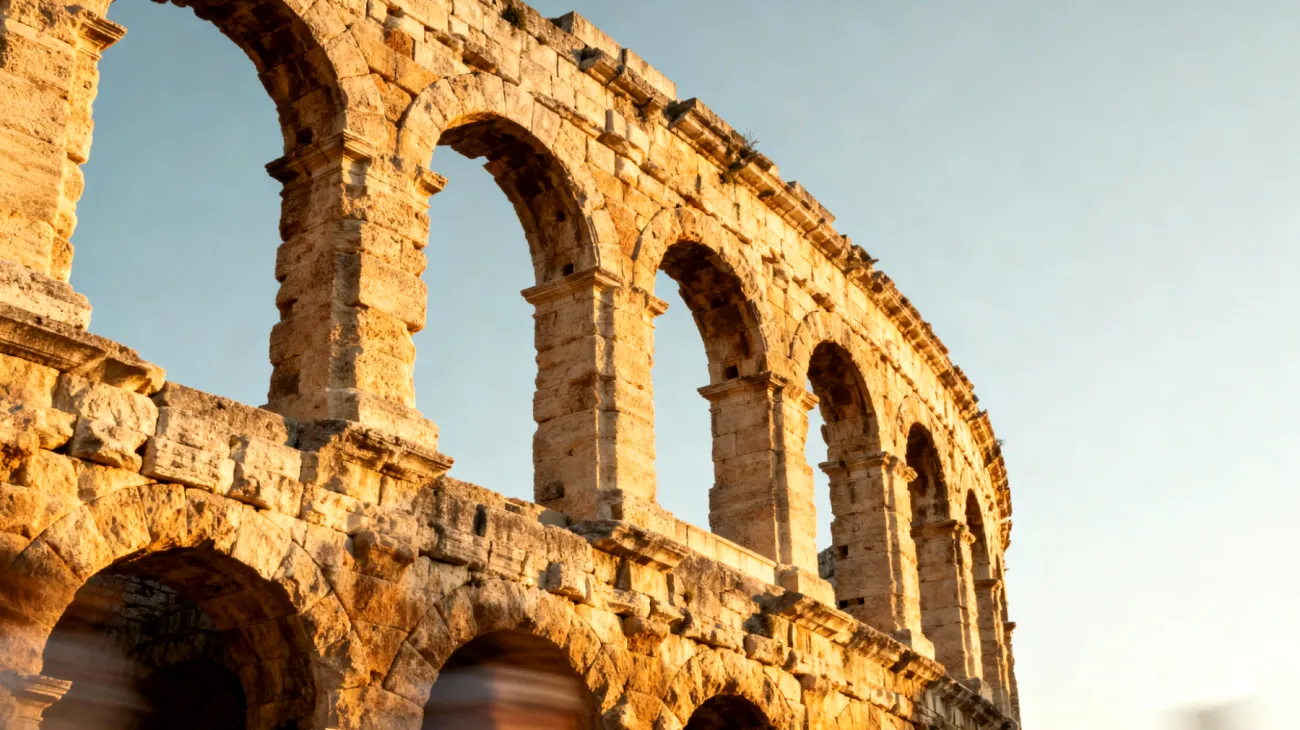September whispers secrets that only seasoned travelers understand, and this year, those secrets lead to Pula – Croatia’s hidden coastal treasure where Roman emperors once walked and where your weekend solo adventure awaits. While summer crowds retreat and autumn paints the Adriatic in golden hues, this Istrian peninsula gem reveals its most authentic face, offering solo travelers an intimate encounter with 3,000 years of history at prices that won’t drain your travel fund.
Picture yourself standing inside a perfectly preserved Roman amphitheater as the Mediterranean sun casts long shadows through ancient arches, or wandering cobblestone streets where Venetian palaces stand shoulder-to-shoulder with Habsburg-era buildings. September in Pula means comfortable 24°C days, warm sea temperatures perfect for swimming, and that magical quality of light that photographers dream about – all without the summer premium prices.
Why September Makes Pula Irresistible for Solo Explorers
September transforms Pula into a solo traveler’s paradise. The oppressive summer heat gives way to perfect exploring weather, while the sea retains its warmth from months of sunshine. Local festivals celebrate the harvest season, restaurants showcase fresh autumn ingredients, and you’ll find yourself naturally striking up conversations with fellow travelers and locals alike who have more time to chat now that the summer rush has ended.
The shoulder season brings another crucial advantage: accommodation prices drop by up to 40% compared to peak summer months, while flights from major European cities become significantly more affordable. Your weekend budget stretches further, allowing you to indulge in experiences that might have been prohibitive just weeks earlier.
Ancient Wonders That Time Forgot
Pula’s crown jewel, the remarkably intact Roman amphitheater, stands as the sixth-largest surviving Roman arena in the world. Unlike its famous cousin in Rome, you can explore this 1st-century marvel without battling endless queues or paying exorbitant entrance fees. The underground chambers, once holding gladiators and wild beasts, now house fascinating exhibitions about ancient olive oil and wine production.
Beyond the amphitheater, Pula’s compact historic center unfolds like a living archaeology textbook. The Temple of Augustus, with its soaring Corinthian columns, sits dramatically in the main square, while the triumphal Arch of the Sergii frames your entry into the old town. Each monument tells stories spanning millennia, from Roman glory through Venetian prosperity to Austro-Hungarian elegance.
Hidden Archaeological Treasures
Venture beneath the city to discover the Roman underground passages that honeycomb the historic center. These atmospheric tunnels, originally used for grain storage and later as wartime shelters, now offer cool respite during warmer afternoon hours and provide unique perspectives on the city’s layered history.
Natural Beauty Beyond the History Books
While ancient stones captivate, Pula’s natural setting enchants equally. The nearby Brijuni National Park, accessible via affordable ferry rides, offers pristine islands where Tito once entertained world leaders. September weather makes hiking the island trails pure pleasure, while the crystal-clear waters invite spontaneous swimming sessions.
Closer to the city, secluded beaches hide along the rocky coastline. Verudela Peninsula provides easy walking access to numerous swimming spots where you can dive directly from rocks into deep, turquoise waters. Pack a picnic from the local market and claim your own private cove for the afternoon.
Savoring Istria on a Shoestring
September marks truffle season in Istria, and Pula’s restaurants celebrate with special menus featuring these prized fungi. Local taverns, tucked away in narrow streets, serve generous portions of truffle pasta, fresh seafood, and local Istrian wine at remarkably reasonable prices. A hearty meal with wine typically costs what you’d pay for a simple sandwich in major Western European cities.
The covered market, bustling with morning activity, offers incredible produce at local prices. Fresh figs, grapes, olive oil, and artisanal cheeses create perfect picnic spreads. Many vendors speak multiple languages and enjoy sharing cooking tips with curious visitors.
Wine Country Within Reach
Istrian wine routes begin practically at Pula’s doorstep. Local buses connect the city to hilltop villages where family-run wineries offer tastings for nominal fees. September’s harvest season means you might witness grape-picking activities and enjoy wines at their freshest.
Smart Solo Travel Strategies
Pula’s compact size makes it perfectly walkable, eliminating transportation costs within the city center. The reliable bus network connects outer attractions affordably, with day passes offering excellent value for active explorers.
Budget accommodation options flourish here, from hostels with social common areas perfect for meeting fellow travelers to private rooms in local homes listed on various platforms. September’s lower demand means last-minute bookings often yield significant discounts.
Getting Around Like a Local
Rent a bicycle from numerous affordable rental points to explore the peninsula’s bike-friendly paths. The flat terrain along the coast makes cycling effortless, while dedicated bike lanes ensure safe traveling. Many rental shops offer weekly rates that cost less than daily public transport in other destinations.
Evening Magic and Nighttime Adventures
September evenings in Pula unfold with Mediterranean magic. The amphitheater hosts concerts and film screenings under the stars, creating unforgettable atmospheres where ancient stones provide the backdrop for contemporary entertainment. Ticket prices remain accessible, especially for cultural events celebrating local traditions.
The harbor area comes alive after sunset, with outdoor terraces serving local craft beers and regional wines. Solo travelers find it easy to join conversations, particularly at communal tables where locals and visitors mingle naturally. Live music venues showcase everything from traditional Istrian folk songs to contemporary Croatian bands.
September in Pula offers solo travelers that rare combination of cultural depth, natural beauty, and authentic experiences without the crowds or costs that plague more famous destinations. Your weekend here won’t just be a getaway – it’ll be a discovery of one of Europe’s best-kept secrets, experienced at the perfect moment when the destination reveals its truest character.
Indice dei contenuti

